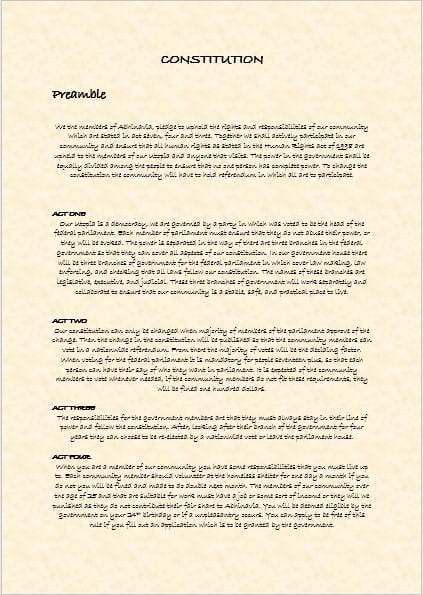Project Utopia was a task made to challenge us to think of innovative ways to try to make a perfect community. This project involved me working with Jarvis Faulks and Callum Moss, the project spanned across terms two and three concluding with a showcase of our models and evidence. In term two we mainly focused on creating our own plans and doing the background research, whilst in term three we worked cohesively and brought one large plan to life.
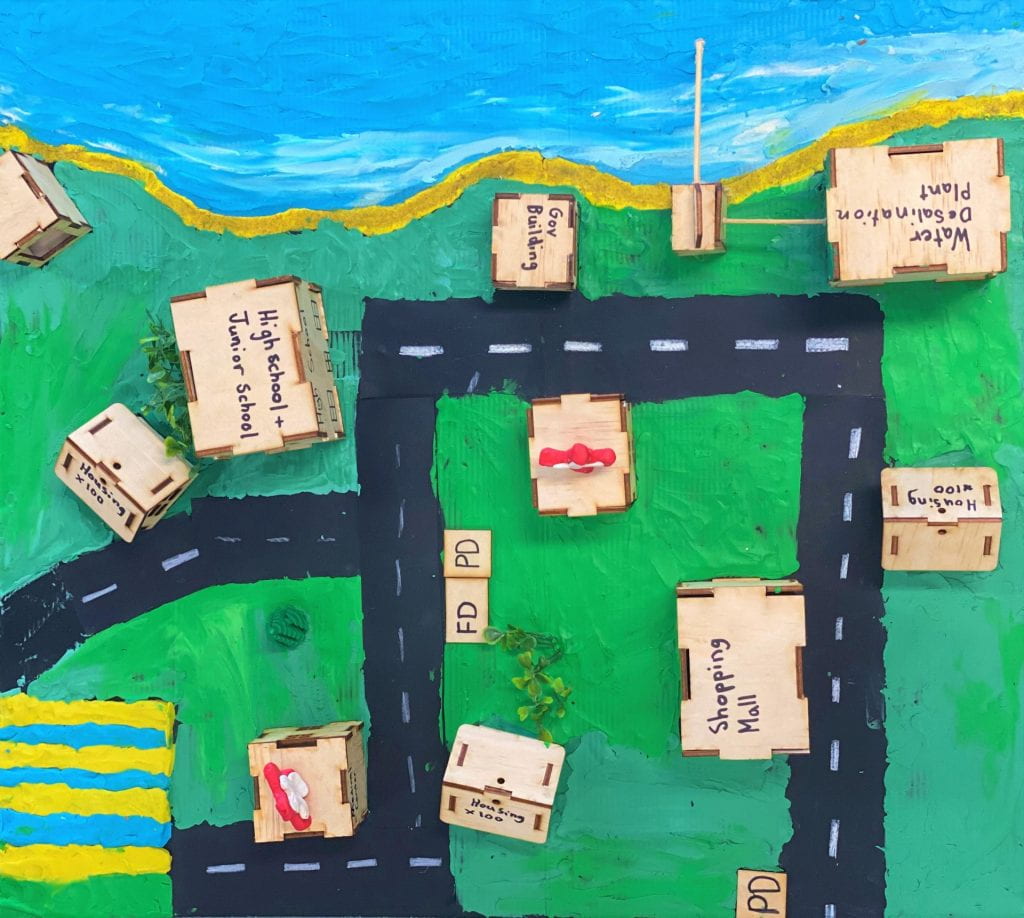
This was our final product 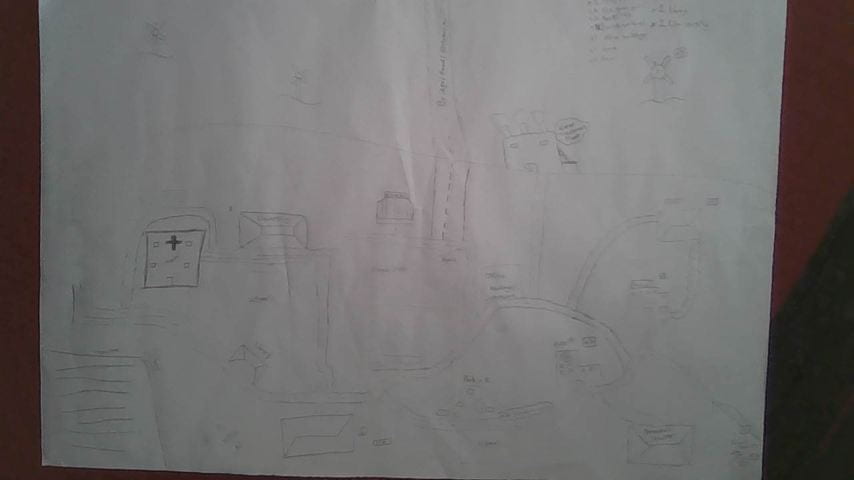
This was our original base plan
This project challenged us to think outside of the box and by using thoughts and ideas from different subjects and use them to help different aspects of the world. We linked the core capabilities into our learning by collaborating with our group, using problem-solving skills to come up with innovative ideas and being inquisitive to constantly think of was to extend our learning. We have also learnt about the organisation and effective communication by making plans of what we want to do each week and talking problems out with our groups to get our point across kindly but effectively. I have improved on these capabilities throughout this task by working with my group and compromising on ideas, asking questions to further our knowledge, and thinking of outside of the box ideas to solve all kinds of problems that we are faced with.
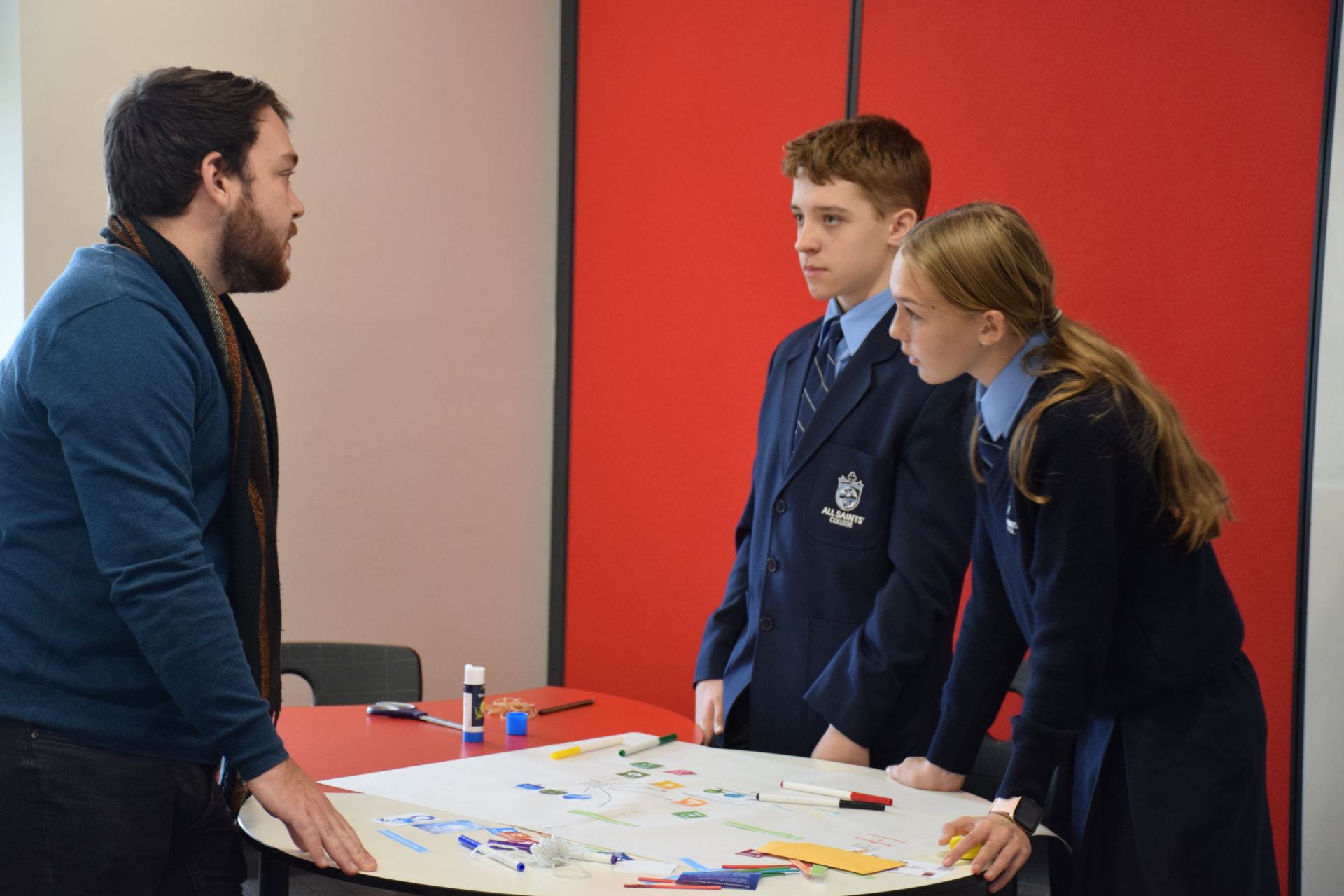
Callum and I talking to a guest facilitator about natural disasters 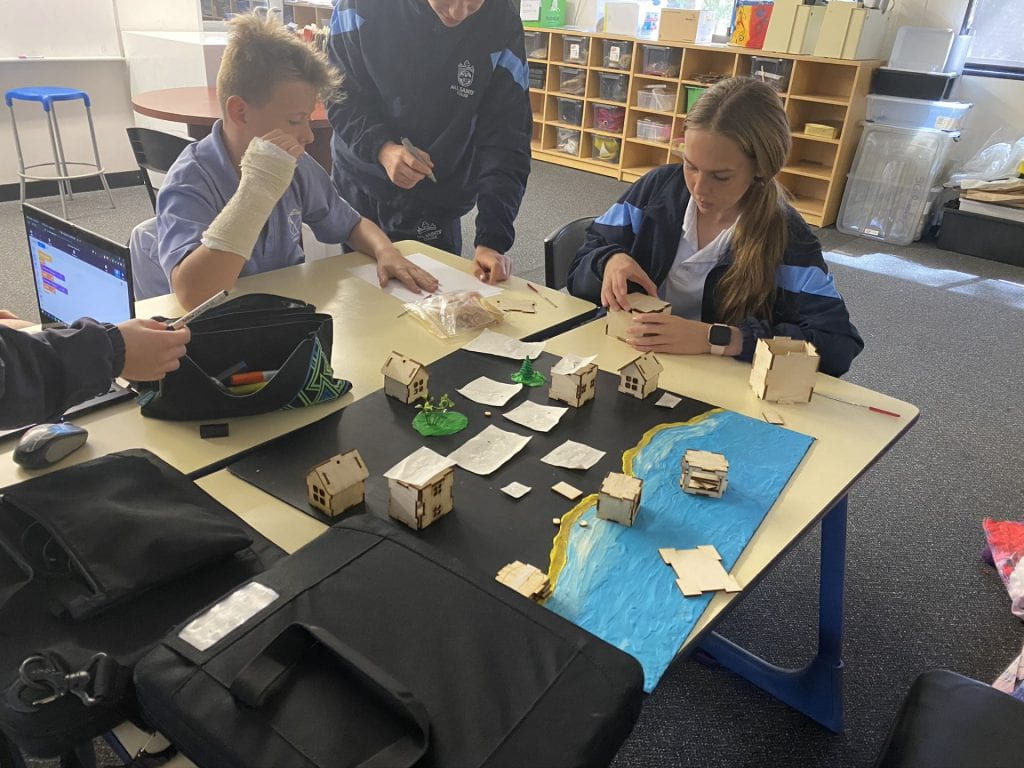
Jarvis and I building schools in connected learning
THE GIVER IN ENGLISH
Our task started in term two when we began reading The Giver. We read The Giver because the so-called perfect community tried to make everyone fit their picture of a perfect person. They did this by removing all colour, making everyone conform to certain rules and punishing them if they do not. After reading The Giver we talked about the impacts of having a perfect world on society and what truly defines a Utopia. This book helped us realize that a perfect world does not exist, but we can put plans in place to help better our world instead.
LIVEABILITY FACTORS IN HASS AND SCIENCE
Then in HASS for term two we focused mainly on liveability factors; these are the factors which affect how desirable a place is to live. Our class focused on the objective and subjective factors, building community and environmental quality. I looked at these factors along with quality education since it is an essential part of everyone’s life. We were given the task to research further about the factors by asking questions such as “which countries portray the factor of quality education the best?” By doing so I learnt a lot about these factors and how I can link them in all different ways to better the welfare of my Utopia.
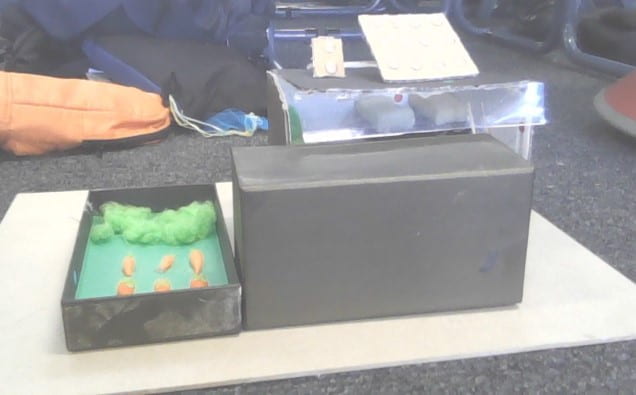
This was Rohail and I’s sustainable house project 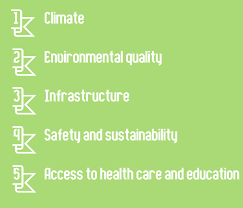
These are the five objective liveability factors
The liveability factor environmental quality carried onto science where we concentrated on making a sustainable house. It needed to consist of water and energy-saving features and behaviours. Rohail and I’s research on sustainable houses told us that building tiny houses saves water and energy since you use a lot fewer resources. We used this idea by creating a tiny house which used solar energy to power the house and uses greywater systems and drip irrigation systems to save water and energy in our house. By learning about the liveability factors, I could effectively apply them into other subjects and apply their factors into my Utopia design for Innovate ED.
ACCREDITATIONS AND THE UNITED NATIONS GLOBAL GOALS
These factors worked well with my design because by adding eco-friendly features and the highest quality educational facilities it helped us achieve many of our accreditations. Accreditations are a display of our knowledge and problem-solving skills, for example, we achieved an accreditation in Industry, Innovation and Infrastructure because we had found ways to bring this goal into our Utopia whilst addressing the negative impacts of such factors on our community. By looking at both sides of this accreditation we learnt that by adding lots of high-quality infrastructures the negative impact would be that the environment would be greatly damaged, therefore we came up with a solution to offset this by creating eco-friendly buildings that work cohesively with our environment.
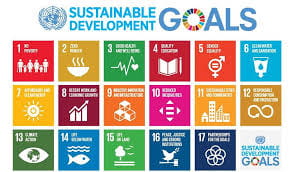
These are the Global Goals which our accreditations were based off of 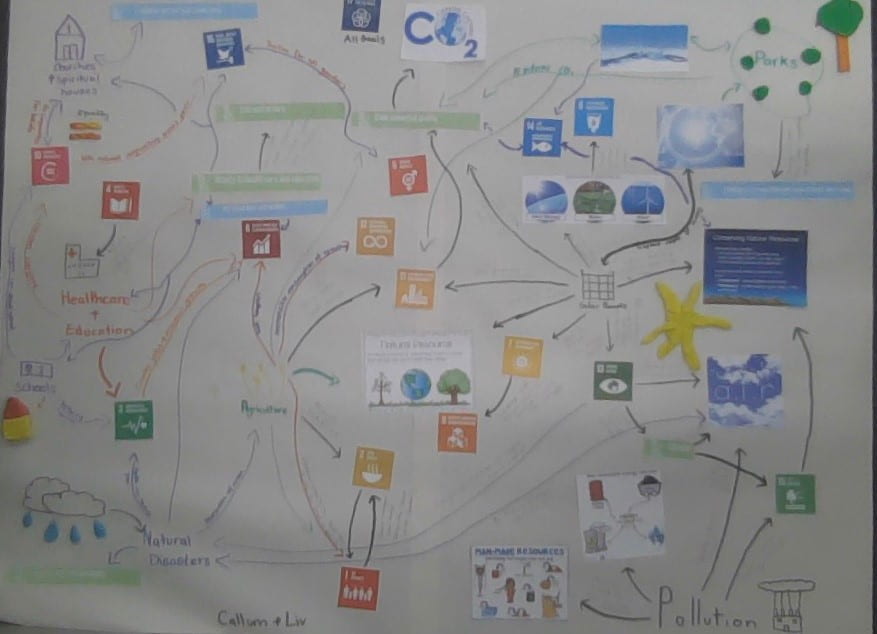
This is a map of all the possible links that each global goal has
The accreditations were based on the United Nations global goals, these goals are meant to be a blueprint to achieve a better and more sustainable future for all. We learnt about all seventeen of them but only chose a few specific ones to address completely, we chose quality education, climate action, good health and wellbeing along with industry, infrastructure and innovation. By addressing these global goals, we learnt that there are many effective ways to try to solve a problem and that many links can appear in things that appear to have nothing in common.
PUBLIC SPEAKING SKILLS IN ENGLISH
The next part of this project was to create a speech combining all our knowledge and learning throughout the Utopia project. This worked hand in hand with English in term three where we were learning about public speaking skills, I was terrified since I am never confident enough to stand up in front of the class and present. We learnt all about P.V.L.E.G.S and how speaking clearly helps you become more relaxed, this helped me majorly in my English presentation as I felt more confident in what I was saying. Even though my speech could have been improved if I worked more on my posture and not shaking whilst I was presenting, I learnt a lot about presentation skills and P.V.L.E.G.S in English.
WRITING A CONSTITUTION IN HASS
The last task that we had to do in our Utopia project was for HASS, where we were given the assignment of making a constitution for our utopia. The assignment was to create a constitution which was to clearly outline our government style, rules, regulations, the separation of power and the way our country votes. In class we learnt about the branches and levels of the government, prior to HASS I did not know much about how the branches of government worked but as we started writing our constitution it all made more sense. The idea of making a constitution for our utopia greatly benefited my understanding of civics and citizenship as I got to take my learning and turn it into an experience which was tailored to our Utopia. So, by being able to write our own constitution not only did I further understand the topic, but I could apply the knowledge into other areas of my learning.
MY THOUGHTS
Overall, project Utopia has been a challenging, but fantastic experience. This assignment has helped me improve my understanding of the core capabilities and really taught me some valuable life lessons. I learnt all about improving my confidence and organisation skills, which I can now effectively apply to other subjects. I also got to know my classmates and team members throughout this project, and this has helped me improve my collaboration skills immensely. In sum, the Utopia project was a wonderful experience that has helped me develop many new skills which I cannot wait to apply to other tasks in my life.

